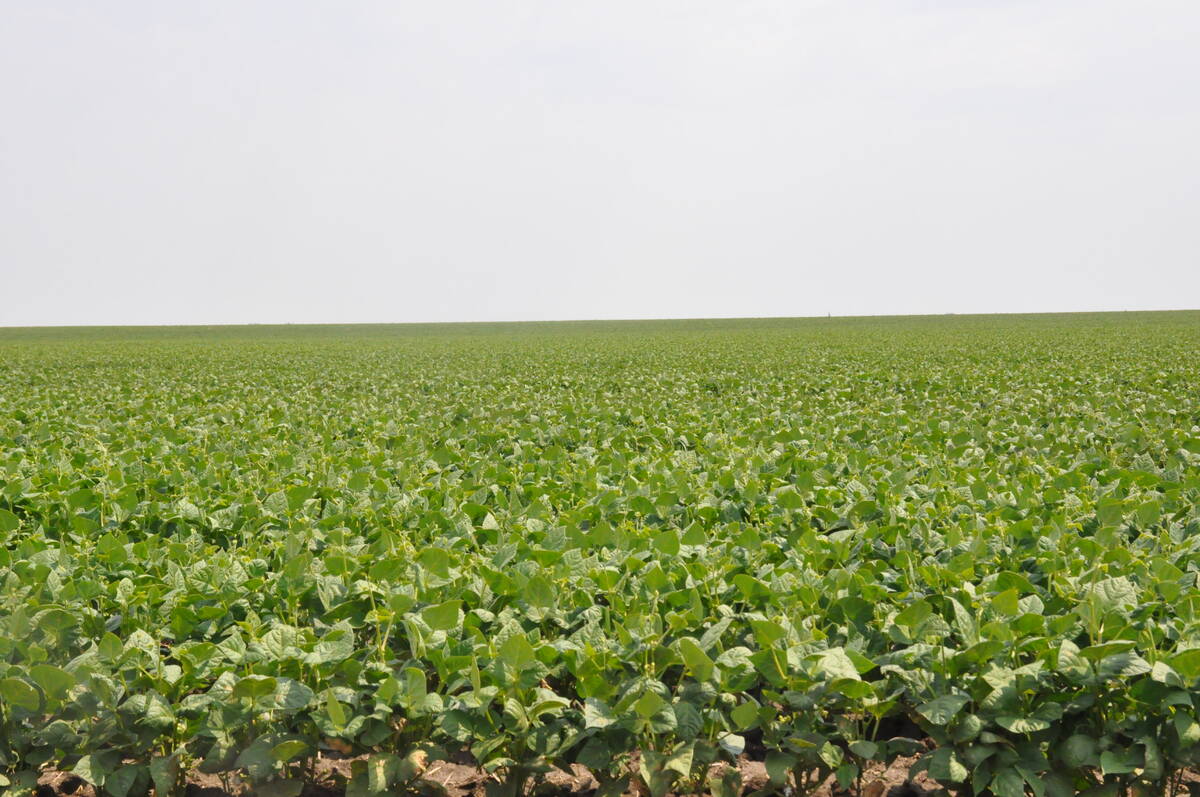Larry Motz of Glidden, Sask., wants to make a good living off his egg
production, but says he is held back by the number of birds he can
raise without quota in Saskatchewan.
Motz and Curtis Jensen of Milden recently took their concerns to the
Saskatchewan Agri-Food Council. It oversees the six-member Saskatchewan
Egg Producers board, which is responsible for allotting quota.
In separate meetings with the council in late February, the two farmers
recommended that the number of birds that a family unit can raise
Read Also

Coloured bean production down, whites are up
Bean prices have been slumping and the outlook is for more of the same.
without buying quota and paying levies to the board be increased to
1,000 from 299.
“That would allow a person to derive an income to pay for the bare
necessities,” Motz said.
Their other concerns focused on the amount of quota held by board
members, how quota moves and the length of time spent on waiting lists
to get quota.
Motz, who has been on the waiting list for 12 years, said that while
the 299 bird limit on unregulated flocks hasn’t changed in years, the
ceiling of 30,000 birds on regulated flocks was raised in 1998.
That change could lead to monopolies and a conflict of interest for
board members, who are also large egg producers, he said.
Motz also told the council that quota was being bought and sold,
contrary to legislation governing the egg industry.
“In my opinion, the board is contravening its authority,” Motz said.
The Saskatchewan Commercial Egg Producers’ Marketing Plan states that
“no remuneration shall be paid or received by any person in the
consideration of the allotting or fixing of quota and no quota may
either directly or indirectly be bought, sold or leased.”
According to Agri-Food Act regulations, quotas are the property of the
marketing board and “no person shall assign, purchase, sell, lease or
otherwise transfer or offer to assign, purchase, sell, lease or
otherwise transfer those quotas…”
Saskatchewan Egg Producers manager Dave Mackie said the group has two
waiting lists, one for those with quota and one for those without.
Priority is given to those with quota.
In practice, most interested producers seek out others wishing to
relinquish their quota, and then ask the board to approve the transfer,
he said.
“You look around and find somebody retiring and strike up a deal,”
Mackie said.”The option is always there if you want to get in right
away.”
Bert Harman, chair of the group’s board, said producers are permitted
to deal with others for production units and to advertise quotas.
“We haven’t had any conflict with any of that to this point,” he said.
It is the board’s responsibility to oversee the transfer and ensure
levies are paid and all requirements are met.
Mackie said the board asked the council for changes in the 1980s after
finding the process of acquiring quota too cumbersome.
“As long as no value was shown on quota, the board would approve the
transfer of that quota,” he said. The producers buy the business value
so it does not get into the cost of production and keeps value away
from quota, he added.
Mackie said all farmers, whether they have regulated or unregulated
flocks, benefit from the supply managed system.
“If there was no supply management, we’d be back to where we were
before, where we got eggs at 50 cents a dozen or less,” he said.
Harman said the board has a legislated mandate to enforce the legal
limits by counting birds.
Saskatchewan’s Court of Queen’s Bench ruled last December that egg
producers had the power to carry out inspections to ensure quota
compliance, but it said the legislation does not authorize forcible
entry.
The decision came after Motz challenged the agri-food act and the
legality of an inspection carried out at his barns. He has admitted to
keeping more than 299 birds in the past. He argued the legislation
contravened his rights as guaranteed under the Charter of Rights.
Harman said the egg producers board would oppose any move by the
council to raise the 299-bird limit.
“It would have a detrimental effect on the industry.”
He said the amount compares favourably with limits in neighbouring
provinces, where non-quota limits are as low as 100.
Increasing non-quota flocks would affect farmers with quota because
there is a finite number of birds that each province is allowed to
raise.
Garf Stevenson, chair of the Saskatchewan Agri-Food Council, said his
committee is considering information presented by Mackie, the egg
producers board, Motz and Jensen.
“We’ve got to study it a bit further,” he said. “It has to be dealt
with fairly but responsibly as well.”
“The council has the responsibility to make sure marketing boards are
operating within the act and regulations and make fair and good
decisions,” said Stevenson.














